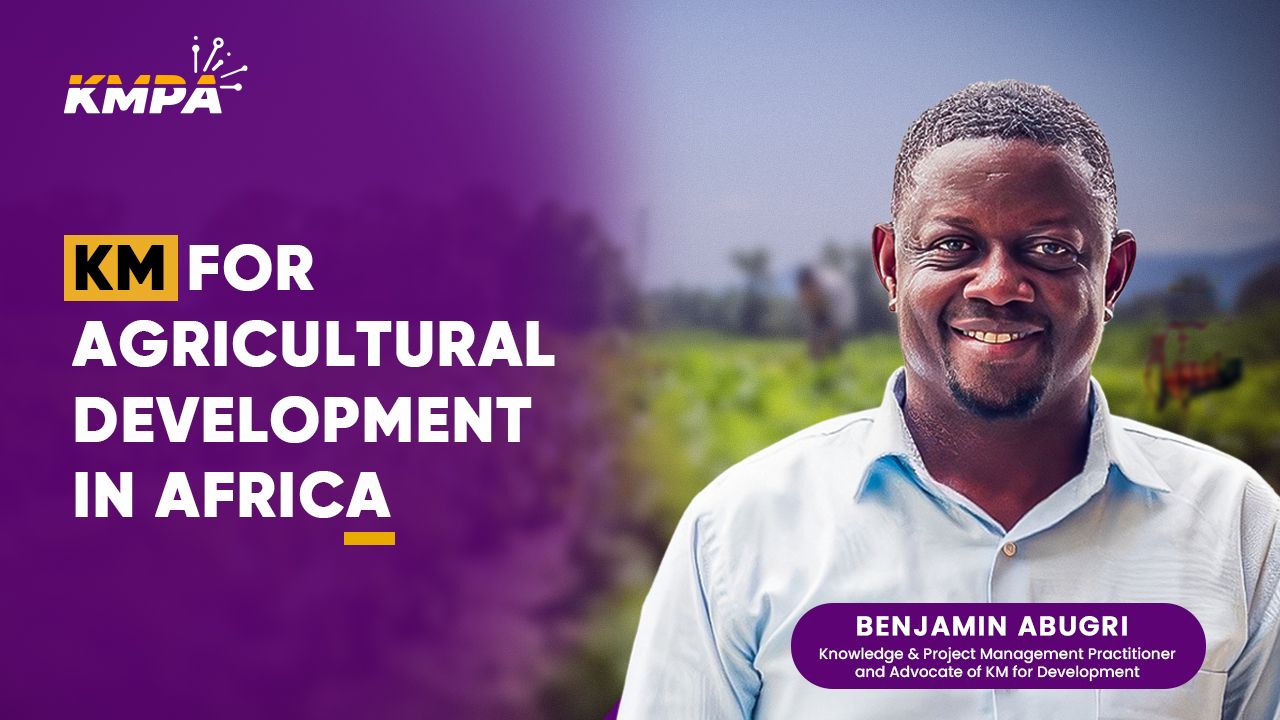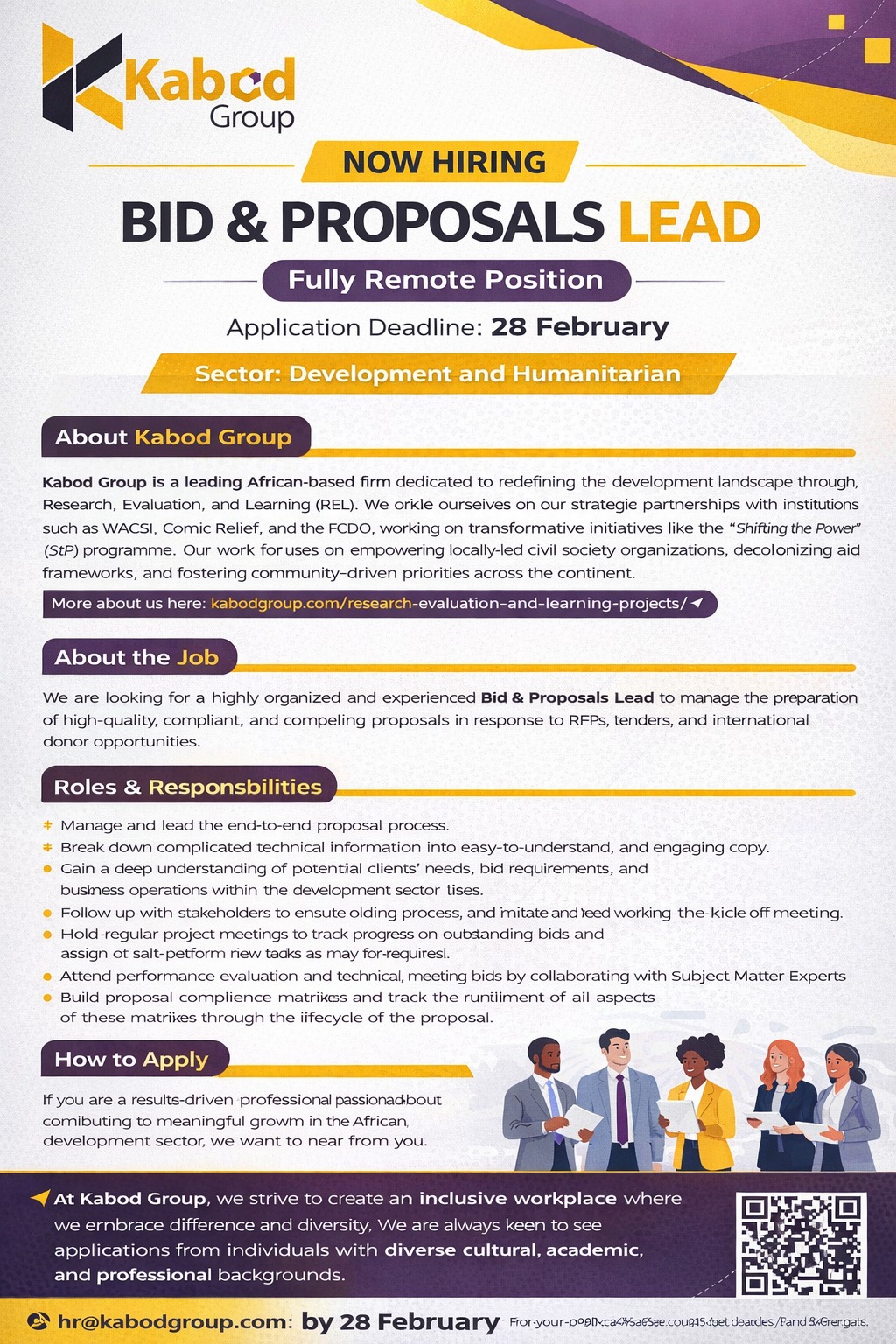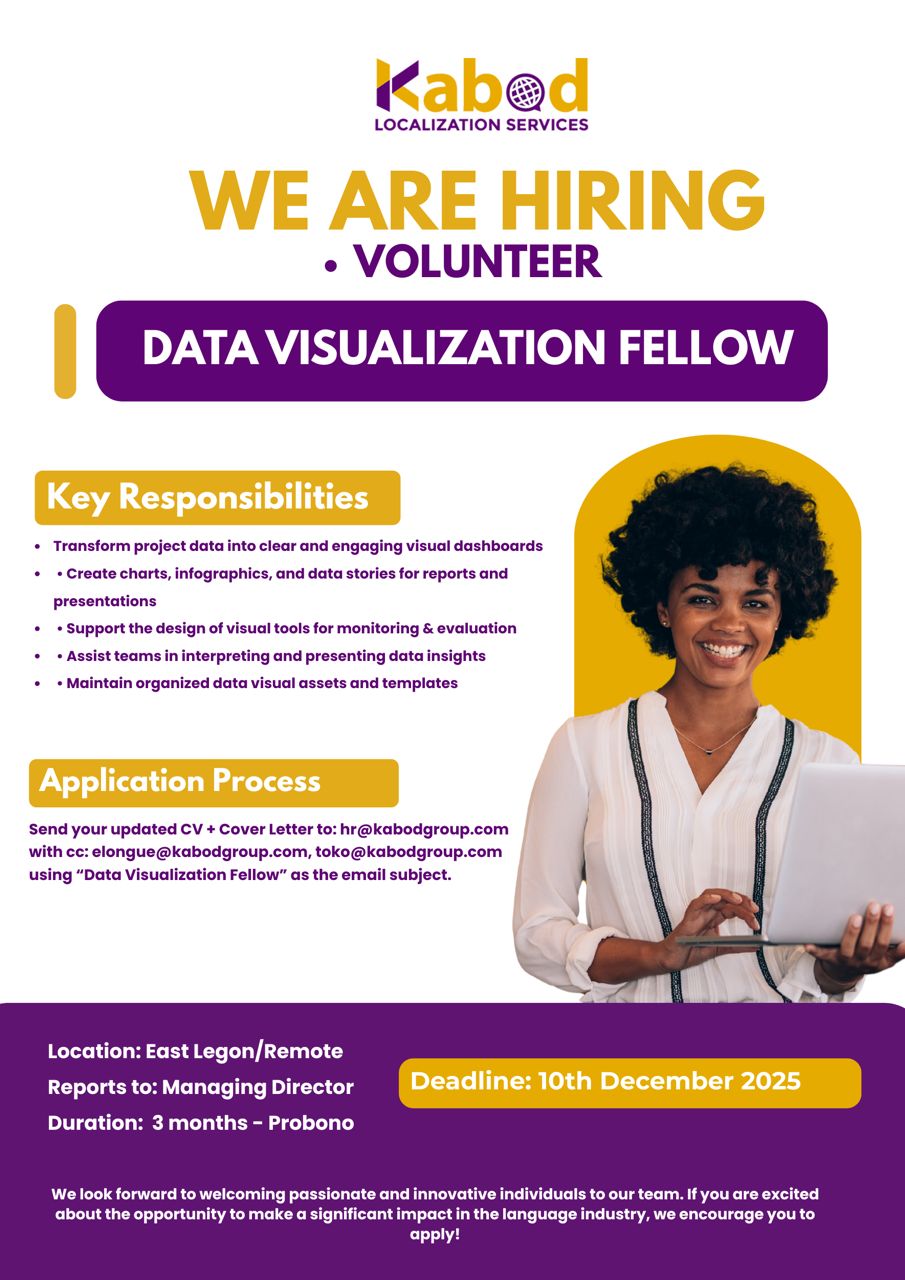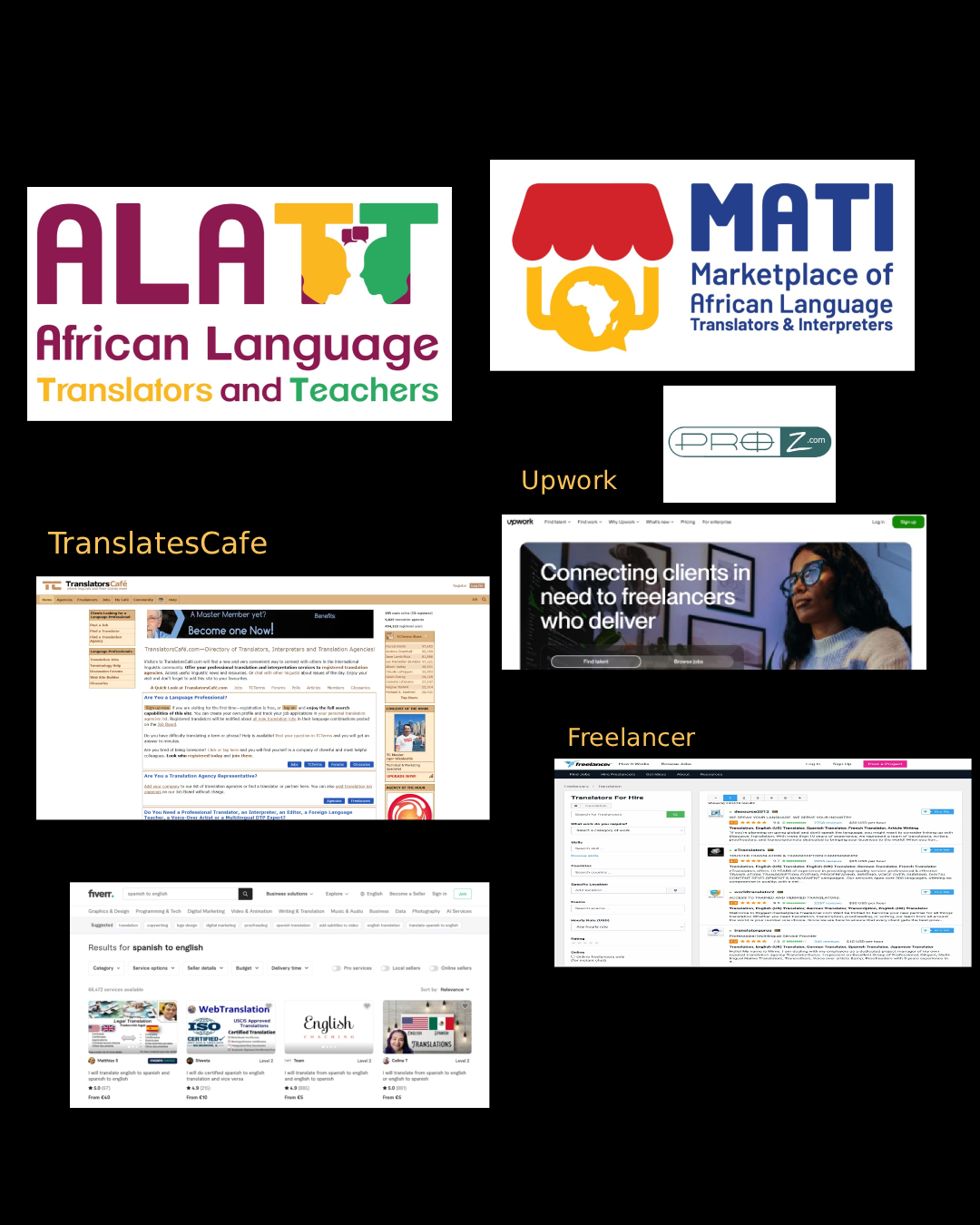In the latest episode of the Knowledge Management in Africa Podcast, Kabod Group had the pleasure of interviewing Mr. Benjamin Abugri, a distinguished professional in the field of Knowledge Management (KM). Mr. Abugri, who holds certifications in both Knowledge Management (KM) and Project Management, currently serves as the Knowledge Management, Learning & Communications Lead Specialist at the Forum for Agricultural Research in Africa (FARA), an apex body of the African Union Commission focused on agricultural research and development.
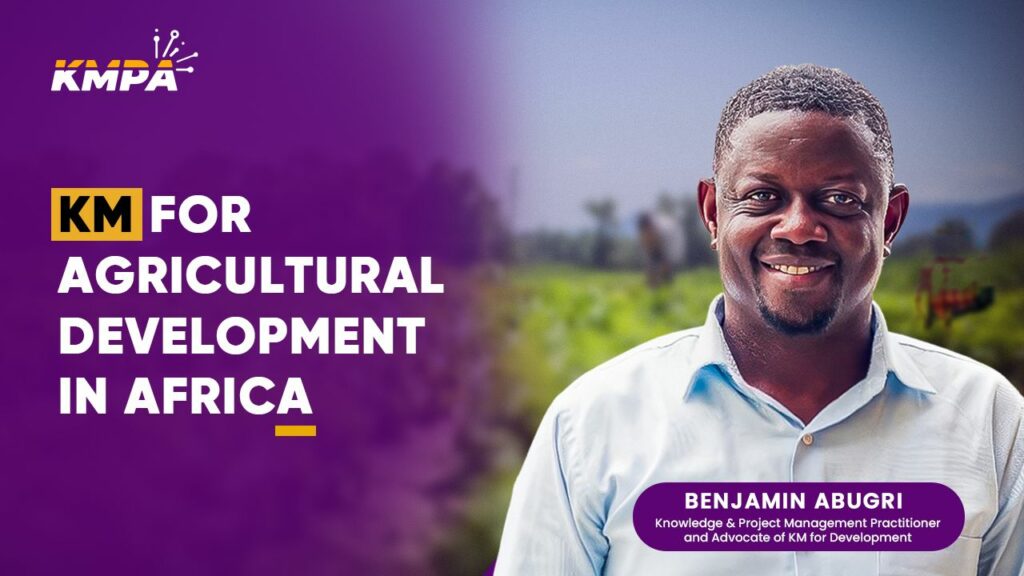
A Journey from Academia to Development
Mr. Abugri shared his intriguing journey into the field of KM, which began with a passion for research during his time at the University of Cape Coast. Initially aspiring to an academic career, his path took a turn during his national service with the Anglican Relief Services (ARS), where he discovered a seamless connection between academia and the development sector. This revelation led him to World Vision International (WVI), where he managed child sponsorship programs in remote districts of Ghana. His exceptional storytelling skills earned him recognition as the best impact story writer at World Vision Ghana, ultimately propelling him into a role in Knowledge Management in January 2013.
Transitioning into this new role, Mr. Abugri faced challenges but received robust training and support from the global KM center, which enabled him to develop and localize KM strategies tailored to the West African context. His subsequent move to USAID Ghana saw him applying his KM expertise to support nutrition and health projects, further solidifying his reputation in the field.
Leading Knowledge Management at FARA
When Mr. Abugri joined FARA in February 2017, he was the organization’s first full-time KM expert. Recognizing the critical role of KM in agricultural development, he spearheaded the creation of a comprehensive KM strategy and policy aligned with FARA’s organizational goals. His first major initiative was establishing a robust knowledge hub to streamline decision-making processes. This hub, known as the FARA Data and Information Systems, serves as a continental observatory for African agriculture.
Mr. Abugri emphasized the importance of KM in creating connections among stakeholders and strengthening knowledge ecosystems. This effort culminated in the Akosombo Integration Agenda, where various stakeholders and experts gathered to chart the future of KM for agricultural development in Africa. One significant outcome was the Knowledge Management in Africa Challenge, a three-month educational program that has equipped stakeholders from over 30 countries with the skills to develop and implement KM strategies.
Addressing Agricultural Challenges through KM
Discussing the impact of KM on addressing agricultural challenges such as climate change and market access, Mr. Abugri highlighted the essential role of KM in achieving the Sustainable Development Goals (SDGs). FARA’s initiatives have fostered national KM partnerships, enabling different sectors to collaborate and share knowledge effectively. This has facilitated the documentation of tacit knowledge and the establishment of a continental KM community of practice, involving key actors like the African Union Commission.
By bridging knowledge gaps and promoting a culture of learning and sharing, FARA aims to reduce duplication of efforts and enhance decision-making processes across the agricultural sector. Mr. Abugri stressed the need for dedicated KM roles within institutions to ensure the effective implementation of KM tools and services.
The Future of KM in Africa
Mr. Abugri noted that while KM is not yet widely recognized as a standalone academic discipline in Africa, significant progress has been made. Collaborations with universities have led to the integration of KM into curricula. Notable examples include Makerere Business School in Uganda, which has established a Knowledge for Development Center, and the International University of Namibia, which now offers a full KM program. Discussions are also underway to introduce KM programs at the University of Ghana Business School.
Looking ahead, Mr. Abugri envisions KM becoming a pivotal driver for decision-making in organizations. He emphasized the necessity for organizations to recognize KM as distinct from IT, communication, and monitoring and evaluation, while also integrating these functions for optimal outcomes. Leadership commitment and funding for KM initiatives are crucial for realizing its full potential.
Upcoming Knowledge Management Conference
Mr. Abugri announced the annual Knowledge Management for Agricultural Development Conference, scheduled to take place in Kigali, Rwanda, from July 29th to 31st 2024. This event invites all KM practitioners and development sector professionals in Africa to share insights, experiences, and strategies for advancing KM across the continent.
As KM continues to gain traction, Mr. Abugri’s work at FARA exemplifies how effective knowledge management can drive progress and innovation in agriculture, ultimately contributing to sustainable development in Africa.
You can listen to the podcast episode here. If you are interested in speaking on the podcast, please contact us at coms@kabodgroup.com . Follow the podcast on our YouTube channel for more updates and episodes.
Written by Prince Teye-Gaga

